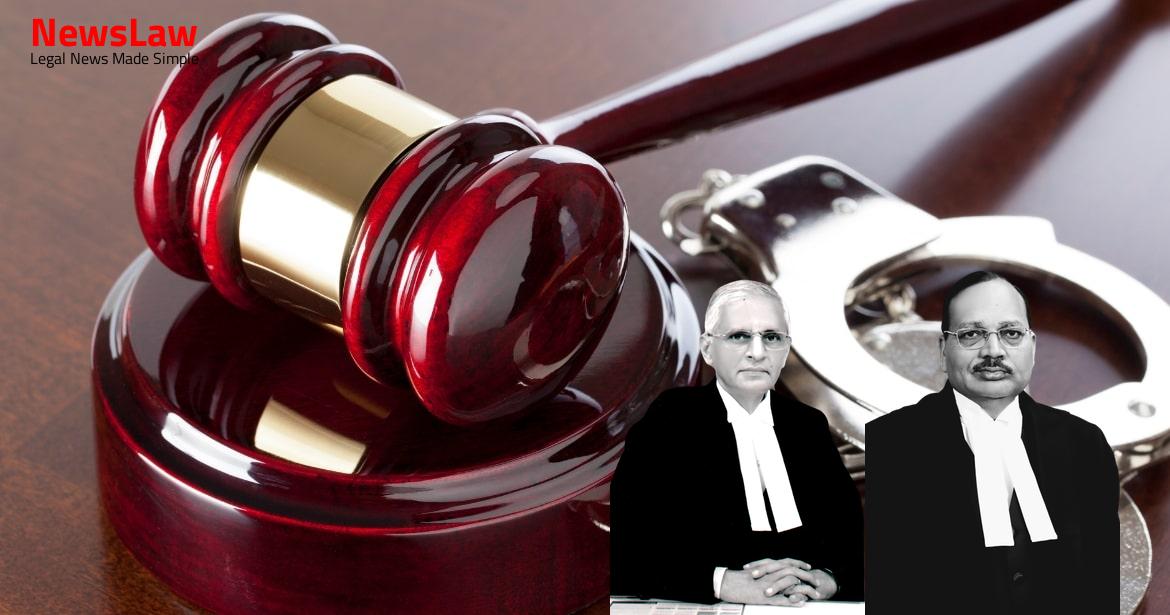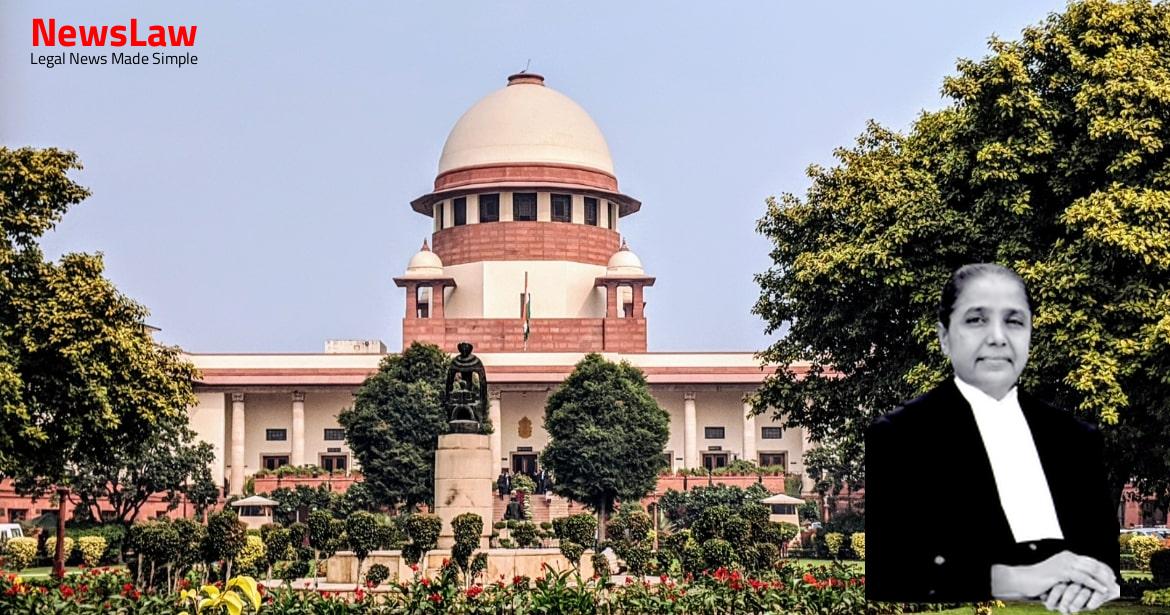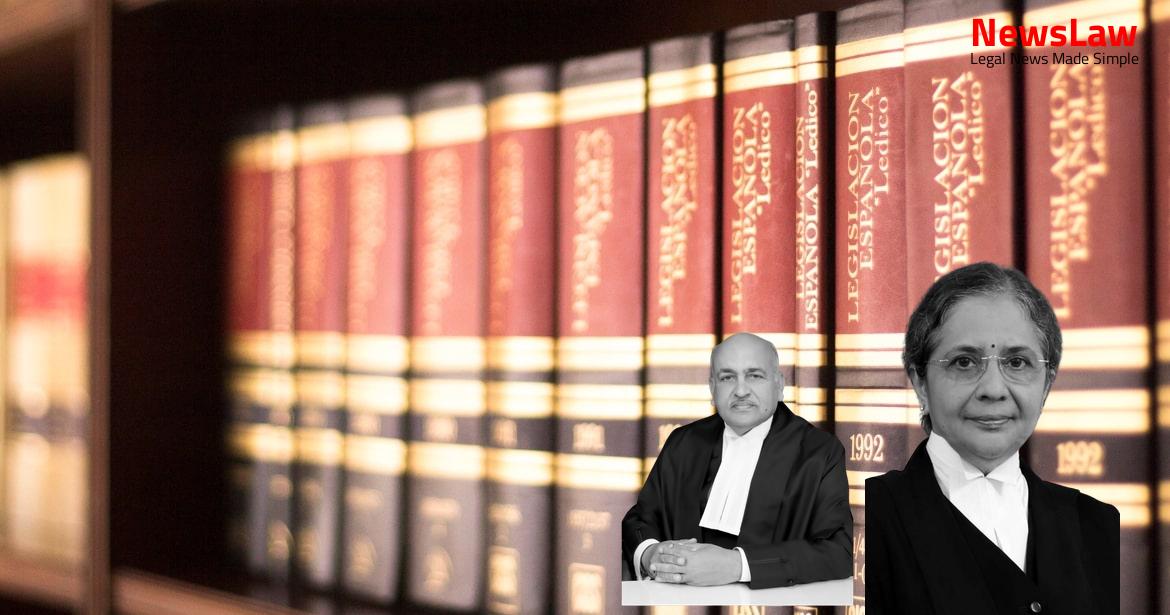Delve into the fascinating legal analysis conducted by the court concerning bail conditions and freedom of speech in a significant tweeting case. The court’s examination provides valuable insights into the nuances of balancing personal liberty with the constraints of criminal proceedings, particularly in the context of social media expression. Stay informed with the latest developments in this intriguing legal saga.
Facts
- The petitioner, co-founder of ALT News, is involved in multiple FIRs alleging offenses under various provisions of the IPC and IT Act.
- The petitioner was granted interim bail by the Court, which has been extended pending further orders.
- The Delhi Police have submitted a comprehensive status report on the investigations related to the FIRs, including search and seizure actions.
- The petitioner has been subjected to police custody and judicial custody in different cases.
- Multiple FIRs are registered in Delhi and various police stations in Uttar Pradesh against the petitioner.
- The petitioner seeks the quashing of certain FIRs and requests the clubbing of investigations related to the FIRs.
- A Special Investigation Team has been constituted by the Director General of Police, Uttar Pradesh to investigate the FIRs against the petitioner.
- The petitioner also seeks interim release on bail in all the FIRs.
- Custodial order extended for four days by Chief Metropolitan Magistrate
- Petitioner remanded to fourteen days of judicial custody on 2 July 2022
- Application for bail rejected by Chief Metropolitan Magistrate
Also Read: Balancing Power and Transparency: Electoral Bonds Struck Down, Disclosure Mandated
Issue
- The petitioner’s counsel argued that the tweets in question did not contain any language that would amount to an offense under criminal law.
- The petitioner often tagged the Uttar Pradesh Police in the tweets, inviting them to take action against objectionable speeches made by others.
- All the FIRs against the petitioner stem from the same issue, involving the content of the tweets.
- It is alleged that the criminal law is being used to harass and silence the petitioner, evident from the multiple proceedings initiated against him in Uttar Pradesh.
- The petitioner has expressed genuine concerns about his safety due to threatening tweets that include bounties on his life.
Also Read: Recall of Resolution Plan Approval: Legal Analysis
Arguments
- Petitioner argues that the tweets in question do not provoke hatred or derogatory remarks towards any community or religion.
- The Court is urged to quash the FIRs based on Article 32 of the Constitution.
- Opposing this, Ms. Garima Prashad argues that the petitioner’s tweets have spread hate and can create communal divides.
- The State of Uttar Pradesh formed an SIT to maintain peace and harmony in response to the situation.
- The repeated tweeting by the petitioner is seen as justifying the invocation of criminal law.
- FIR No 172/2022 invokes sections of the IPC and FCRA, indicating the seriousness of the allegations.
- The prosecution argued that the respondent should be remanded to police custody for further investigation.
- They highlighted the seriousness of the charges against the respondent.
- The prosecution claimed that the respondent’s cooperation is crucial for the progress of the case.
- Furthermore, they stated that the respondent is a flight risk and may tamper with evidence if released.
Analysis
- The petitioner faced multiple investigations and FIRs across different states for similar alleged offenses based on his tweets.
- The Court ordered the transfer of all FIRs against the petitioner to the Special Cell of the Delhi Police for consolidated investigation.
- The petitioner was granted interim bail for current and future FIRs related to his tweets.
- The Court emphasized the need for a fair investigative process and consolidated investigation by a single authority.
- The petitioner’s right to express his opinion as a citizen should not be disproportionately restricted as a condition of bail.
- The power of arrest should be used sparingly, especially when the petitioner has already undergone sustained investigation by the Delhi Police.
- The petitioner was granted the liberty to move the High Court of Delhi under Section 482 CrPC for quashing FIRs if advised to do so.
- The SIT constituted by the Uttar Pradesh Police was deemed redundant and disbanded due to the transfer of FIRs to the Delhi Police.
- Individuals must not be punished solely on the basis of allegations and without a fair trial.
- Imposition of a condition barring the petitioner from tweeting on bail is akin to a gag order which has a chilling effect on freedom of speech.
- The Court should impose conditions based on the specific facts of each case.
- Criminal law should not be used as a tool of harassment.
- Section 41 of the CrPC and safeguards in criminal law exist due to the power dynamics between the state and an individual in criminal proceedings.
- The State of Uttar Pradesh attempted to restrict the petitioner from tweeting while on bail, which may go against Section 438(2) of the CrPC.
- The power of arrest in cognizable offenses is justified under the ‘interest of justice’ as per Section 41.
- Bail conditions should be proportionate and not punitive in nature, as the loss of personal liberty is a grave consequence.
- Anticipatory orders preventing the petitioner from tweeting solely based on social media posts are unwarranted.
- Police officers must be satisfied that the arrest is necessary to prevent further offences, for proper investigation, to prevent tampering with evidence, to prevent influencing witnesses, or to ensure the arrestee’s presence in court.
- Police officers must apply their mind to the case before making an arrest.
- The conditions in Section 41 of the CrPC must be met before conducting an arrest.
- Passing an order restricting the petitioner from posting on social media could violate his freedom of speech and expression, as well as his freedom to practice his profession.
- The petitioner is a journalist and co-founder of a fact-checking website who uses Twitter to combat false news and misinformation through dispelling morphed images, clickbait, and tailored videos.
Decision
- The order enlarging the petitioner on bail is in force.
- Investigation into the mentioned FIRs is transferred to the Special Cell of the Delhi Police.
- The SIT constituted by the Director General of Police, Uttar Pradesh, is disbanded.
- Any future FIR against the petitioner on the same subject matter will also be investigated by the Special Cell of the Delhi Police.
- The petitioner can seek remedies under Article 226 of the Constitution / Section 482 of CrPC before the High Court of Delhi regarding the FIRs.
- The bail bonds must be presented before the Chief Judicial Magistrate for compliance.
- The petitioner is granted interim bail subject to a personal release bond of Rs 20,000 in connection with specific FIRs.
- Proceedings in Crime No. 199 of 2021 shall be transferred to the Chief Judicial Magistrate, Patiala House Courts, Delhi.
- The petitioner must be released from judicial custody by 6 pm upon presenting the bail bonds.
Case Title: MOHAMMED ZUBAIR Vs. STATE OF NCT OF DELHI (2022 INSC 736)
Case Number: W.P.(Crl.) No.-000279 / 2022



